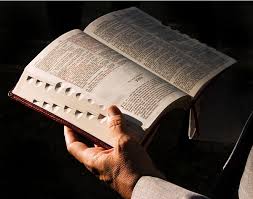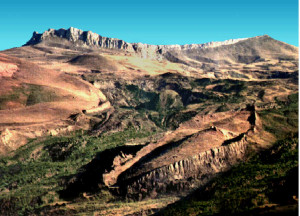GENESIS.
I n this book we have all the great principles of God’s relationship with man, without bringing in redemption which makes a people for God and a dwelling-place for God in man. You never, save in chapter 2:3, get the word “holiness” in Genesis; and you never have God dwelling with men.
n this book we have all the great principles of God’s relationship with man, without bringing in redemption which makes a people for God and a dwelling-place for God in man. You never, save in chapter 2:3, get the word “holiness” in Genesis; and you never have God dwelling with men.
Creation is first treated of; then innocence, lordship, and marriage, the figure of union with Christ. Next we have the fall, man’s sin against God, and then in Cain man’s sin against his brother. There is, at the same time, a witness of certain righteous persons: Abel in sacrifice, Enoch in life, and Noah in testimony of approaching judgment. You then get the complete corruption of the whole system, and the deluge.
Having had in Enoch a figure of the church, we get in Noah deliverance through judgment. Then a new world begins, God entering into covenant with it, and government introduced to prevent violence. But the governor fails, and God’s plans as to the races of men are brought out. We find God making nations, in consequence of man’s attempt to remain united so as to be independent. In the midst of these nations we have, in Nimrod, imperial despotic power in an individual. It is connected with Babel, the place of man’s wickedness. In point of fact, the division of mankind into nations comes by judgment.
Shem’s family having been owned on the earth – the Lord God of Shem, national existence is recognized as God’s principle of the constitution of the earth. He now begins an entirely new thing. He calls out an individual to be the head of a blest race. Whatever individual saints there had thus far been, there had been no counterpart of Adam as the head of a race. Abraham was called out to be this. Election, calling, and promise are connected with his calling. Consequently you have Abraham here, as a stranger and pilgrim, with nothing but his tent and his altar. He fails, like everybody, but God judges the world – Pharaoh’s house – for him.
We then get the distinction between a heavenly-minded and an earthly-minded man; the world having power over the earthly-minded (Lot), and the heavenly one (Abraham) having power over the world. In connection with this we have in Melchizedek the future priest upon his throne, linked with God’s supremacy over heaven and earth. Abraham’s separation from the world having been demonstrated, Jehovah presents Himself to Abraham as his shield and reward. We first get the earthly inheritance and people, that is, in promise. Abraham looks for the promise in a fleshly way, and that is all rejected. We have then the promise to Abraham of being the father of many nations, God revealing Himself as God Almighty. We have also His covenant with Abraham, and the principle of separation to God by circumcision. Chapter 18 gives the promise of the heir, the judgment of the world (Sodom), and the connection of a heavenly people (Abraham) with God, by intercession. In chapter 19 we have the connection with the judgment of the earthly people (Lot), saved as by fire through the tribulation.
What follows this, in chapter 20, is the absolute appropriation of the wife, whether Jerusalem or the heavenly bride, as the spouse of the Lord. The old covenant (Hagar) is cast out, and, the true heir (Isaac) comes. He takes the land (chap. 21).
Chapter 22 begins another series of things. The promised heir having being offered up, the promise is confirmed to the seed. Sarah dies (chap. 23): this is the passing away of the old association with God on the earth. Hence, in chapter 24 Eliezer (in figure the Holy Ghost, or His work on earth) is sent to take a wife for Isaac (Christ), who is Heir of all things. Isaac is not permitted to return to Mesopotamia. So, Christ, in taking the church, cannot come down to earth.
However, the moment we get Jacob, we get the head of the twelve tribes. He goes to Mesopotamia for Rachel and Leah, typical of Israel and the Gentiles. Jacob is the elect, but not the heavenly people. He goes back to Canaan, gets the promises, with all sorts of exercises, as Israel will, but, if he does, he must give up old Israel (Rachel) to get Benjamin, the son of his right hand.
In the brief notice of Esau’s offspring we find the world in vigour and energy before God’s people are. Then another history commences, that of Joseph. This portrays Christ, though connected with Israel, rejected by Israel, and sold to the Gentiles. He now comes to be the head, having the throne, and governing all Egypt. God has done with Israel, receiving a Gentile wife, and calls his children by names typical of Christ’s rejection and blessing outside Israel. He receives back his brethren in the glory. This part closes with two distinct testimonies, the will of Joseph about his bones, and Jacob’s prophecy that they will all be back in the land and the promises to Israel be fulfilled.
Lightly edited by Sosthenes, May 2014

